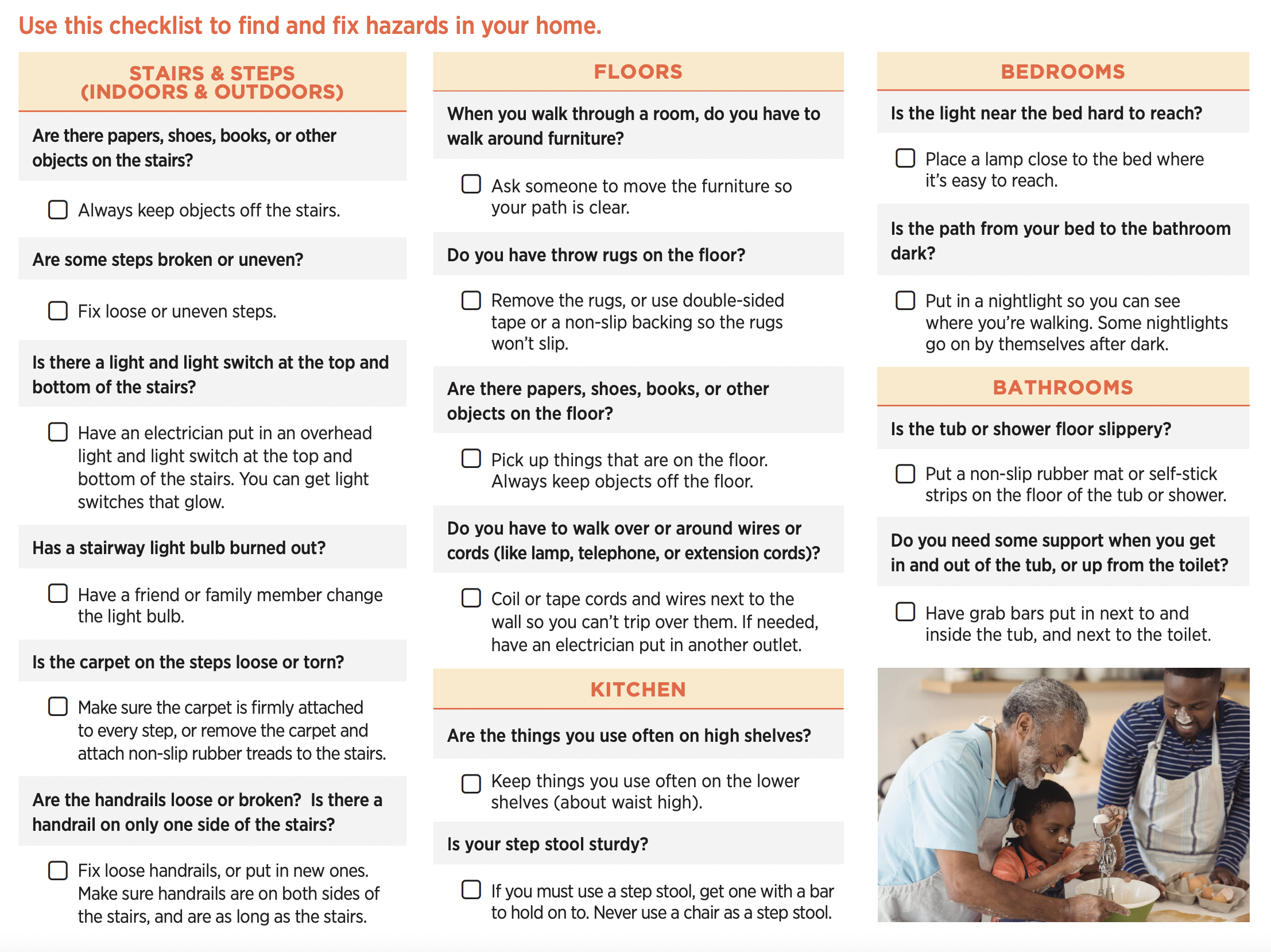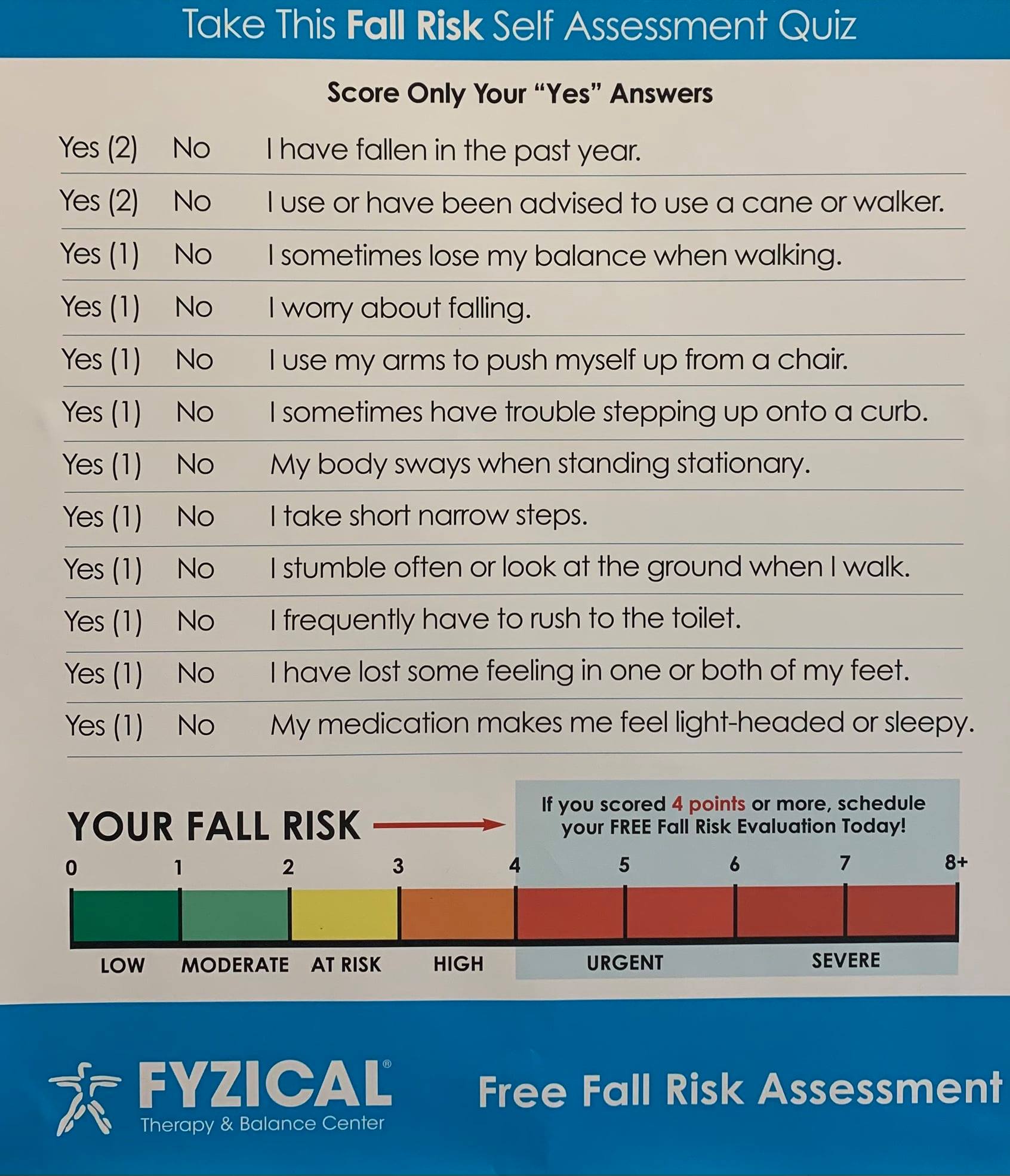Dementia Fall Risk Fundamentals Explained
Dementia Fall Risk Fundamentals Explained
Blog Article
Not known Factual Statements About Dementia Fall Risk
Table of ContentsDementia Fall Risk for DummiesDementia Fall Risk for DummiesThe Dementia Fall Risk StatementsWhat Does Dementia Fall Risk Mean?Dementia Fall Risk Things To Know Before You Buy
The FRAT has 3 areas: drop danger standing, risk variable list, and activity plan. An Autumn Threat Standing consists of information about history of current drops, medicines, psychological and cognitive status of the individual - Dementia Fall Risk.If the patient ratings on a danger aspect, the corresponding number of points are counted to the individual's autumn danger score in the box to the much best. If a patient's autumn risk rating amounts to five or greater, the person is at high threat for falls. If the client ratings just 4 factors or reduced, they are still at some danger of falling, and the nurse should use their ideal clinical analysis to manage all fall risk aspects as part of an alternative care strategy.
These conventional strategies, in general, aid establish a safe atmosphere that reduces unexpected drops and defines core safety nets for all people. Indicators are crucial for people in danger for falls. Healthcare providers need to acknowledge who has the problem, for they are in charge of applying actions to advertise individual safety and security and prevent drops.
The Of Dementia Fall Risk
For instance, wristbands must consist of the person's last and given name, day of birth, and NHS number in the UK. Details ought to be printed/written in black against a white history. Just red color should be made use of to signify unique client standing. These referrals are consistent with existing growths in individual identification (Sevdalis et al., 2009).
Items that are as well far might need the patient to get to out or ambulate unnecessarily and can possibly be a risk or add to drops. Helps prevent the patient from heading out of bed without any aid. Nurses reply to fallers' call lights quicker than they do to lights launched by non-fallers.
Visual impairment can greatly trigger falls. Maintaining the beds closer to the flooring reduces the danger of falls and significant injury. Positioning the bed mattress on the floor dramatically reduces fall danger in some healthcare setups.
Dementia Fall Risk Can Be Fun For Anyone
Clients who are tall and with weak leg muscle mass who try to rest on the bed from a wikipedia reference standing placement are most likely to fall onto the bed because it's too reduced for them to reduce themselves securely. Likewise, if a tall client attempts to stand up from a reduced bed without help, the client is most likely to fall back down onto the bed or miss out on the bed and drop onto the flooring.
They're developed to advertise prompt rescue, not to stop falls from bed. Audible alarm systems can likewise remind the patient not to stand up alone. The usage of alarms can likewise be an alternative to physical restraints. Besides bed alarms, increased supervision for risky people likewise may aid avoid drops.

Patients with an evasion stride increase autumn chances substantially. To reduce autumn risk, shoes must be with a little to no heel, slim soles with slip-resistant tread, and support the ankle joints.
Indicators on Dementia Fall Risk You Should Know
In a research study, homes with appropriate lighting record fewer falls (Ramulu et al., 2021). Improvement in illumination at home may decrease loss rates in older adults.

Caretakers work for ensuring a safe, protected, and safe environment. Research studies demonstrated extremely low-certainty evidence that caretakers lower loss threat in acute treatment healthcare facilities and just moderate-certainty that options like video tracking can decrease caretaker usage without boosting loss threat, recommending that sitters are not as valuable as initially thought (Greely et al., 2020).
Dementia Fall Risk for Dummies

Increased physical fitness reduces the danger for falls and limits injury that is received when loss transpires. Land and water-based exercise programs might be in a similar way useful on equilibrium and stride and consequently reduce the danger for falls. Water exercise might add a positive benefit on equilibrium and gait my website for females 65 years and older.
Chair Rise Exercise is a straightforward sit-to-stand workout that aids strengthen the muscle mass in the thighs and butts and enhances mobility and freedom. The objective is to do Chair Increase workouts without utilizing hands as the client ends up being stronger. See resources area for a detailed direction on just how to execute Chair Rise exercise.
Report this page